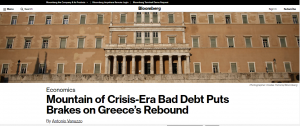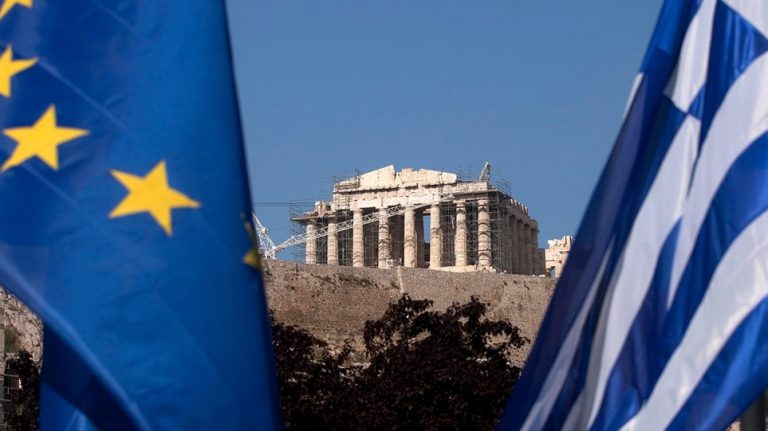The “mountain” of the precarious Greek debt is hindering the recovery of the country’s economy, according to a Bloomberg report.
As the columnist points out, investors who specialise in buying up “soured” debt are gathering in Athens to hear if there is anything valuable left under the “rubble” following one of the steepest financial crises in living memory.

Investors who specialize in buying up soured debt at a discount are gathering in Athens to hear whether there’s value in the debris left by one of the steepest economic crises in living memory.
The money men attending an annual conference on Greek non-performing loans on Friday can expect a warm welcome too. They’re central to Greek government plans to revive a banking system that remains hobbled by bad debt, starving companies of much-needed capital.
Even as the economy heads into a third year of growth, credit provided by Greek lenders to private enterprises is declining and fell 1.4 percent in November from a year earlier, according to central bank data.
“Small and medium enterprises with excellent know-how and solid business propositions and around 30 million euros in revenues or less, are in great need of funding,” said Petros Doukas, chairman of advisory boutique Capital Partners SA and a former deputy finance minister.
One of the biggest obstacles to providing that money is the ongoing legacy of the country’s debt crisis that forced it to seek multiple international bailouts. Borrowers are failing to meet payments on almost half the debt owed to Greece’s banks. In other words, there’s 88.6 billion euros ($101 billion) of bad loans weighing down the balance sheets of Greek lenders, equivalent to about half the country’s annual economic output.
more at bloomberg.com
Ask me anything
Explore related questions





